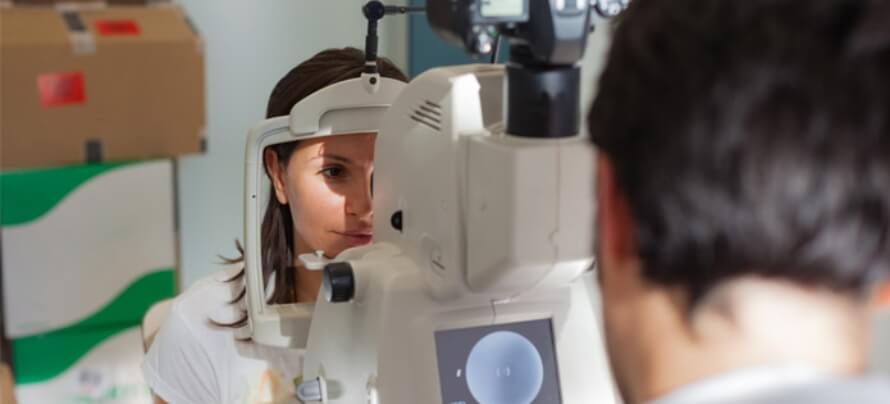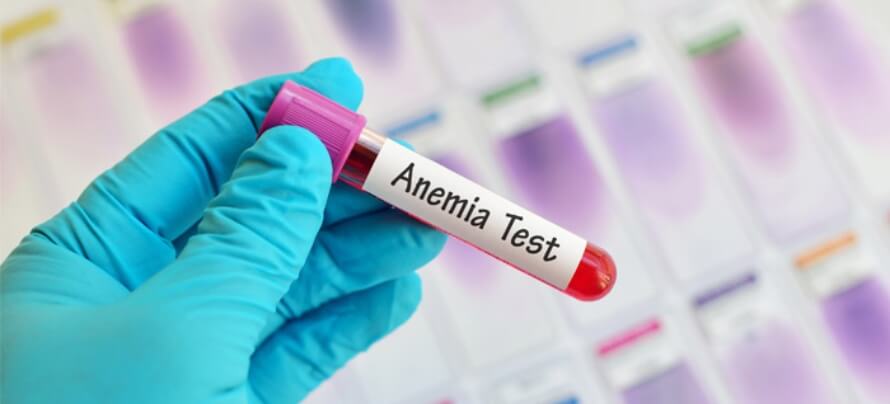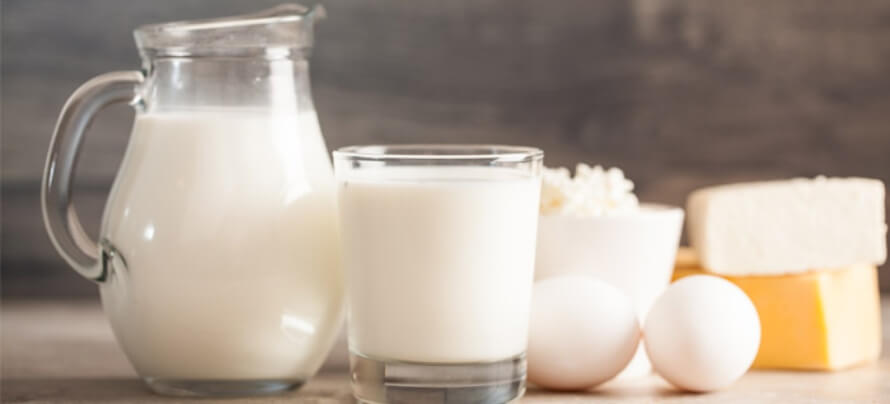Key Takeaways
- Vitamin B12 is a critical vitamin that’s involved in the creation of red blood cells, neurological function, and DNA synthesis. It’s found primarily in animal products.
- If you don’t get enough B12, you could experience vision loss, cognitive decline, depression, a swollen tongue, infertility, or anemia.
- To avoid a B12 deficiency, aim to get at least 2.4 micrograms of B12 per day through food or supplements if necessary (keep reading to learn which foods are highest in B12!).
Vitamin B12 is something most people rarely think about—yet if you don’t get enough, it can lead to some serious issues.
About 6% of people under the age of 60 and 20% of people over 60 are vitamin B12 deficient in the United States and United Kingdom.
Clearly, more people should be thinking about vitamin B12 in their diets!
Don’t be one of those caught off-guard by a sneaky lack of B12. This article will tell you what vitamin B12 is and what you need to look out for when it comes to not getting enough of it.
What Is Vitamin B12?

Vitamin B12, also known as cobalamin, is a water soluble vitamin necessary for the proper formation of red blood cells, neurological function, and DNA synthesis.
B12 is naturally found in animal products like fish, meat, poultry, eggs, milk, and other dairy products.
It’s not typically found in plant-based products, which is why it’s easier for vegetarians and vegans to become deficient. However, some foods like cereals, nut, milks, and nutritional yeast are fortified with bioavailable B12, making it easier for plant-eaters to meet their needs.
Causes of B12 Deficiency
The main causes of vitamin B12 deficiency are:
- Aging
- Atrophic gastritis, a condition where your stomach lining has become thinner
- Weight loss surgery that removed part of the stomach or small intestine
- Crohn’s disease, celiac disease, bacterial growth, or a parasite that affects the small intestine
- Heavy drinking
- Some immune system disorders
- Medications that interfere with B12 absorption, including heartburn drugs
- A vegetarian or vegan diet without B12 supplementation
Signs of Vitamin B12 Deficiency
Some signs you may not be getting enough B12 in your diet include:
Vision Loss

If your vision isn’t what it used to be, a lack of B12 could be the culprit.
A deficiency could contribute to impaired sight through a few different conditions.
One such condition is optic neuropathy, a frequent cause of vision loss due to damage to the optic nerve.
A 2005 case study, published in the European Journal of Internal Medicine, looked at a 68-year-old man who had decreased central vision for months. He had low levels of vitamin B12, but once he began supplementing with this essential vitamin, his vision gradually improved.
The researchers behind the study say that optic neuropathy is a rare, but important, signal of vitamin B12 deficiency.
A later study found that children with autism who didn’t eat many animal foods developed optic neuropathy caused by a vitamin B12 deficiency. Supplementation reversed the vision problems.
Another condition known as age-related macular degeneration (AMD)—the leading cause of vision loss in the US for those aged 50 or older—has also been linked with vitamin B12.
In this case, while a deficiency hasn’t been shown to lead to AMD, supplementing with B12 does reduce the risk of developing AMD.
In 2009 research, the effects of B vitamins (folate, B6 and B12) on macular degeneration were examined.
Over 5,000 women were followed for over 7 years. They were asked to supplement daily with one of the B vitamins, or a placebo.
At the end of the study, there were 55 cases of AMD in the vitamin B group versus 82 in the placebo group indicating that daily B vitamin supplementation may lower the risk of developing macular degeneration in women.
Summary: A vitamin B12 deficiency can cause damage to the optic nerve, resulting in reversible vision loss. Taking B12 has also been linked with a reduced risk of age-related macular degeneration.
Cognitive Difficulties

A lack of vitamin B12 can affect your cognitive function.
Vitamin B12 is involved in the process of creating myelin, a fatty substance that enhances the function of nerves and neurons in your brain.
It stands to reason that a deficiency in B12 could cause problems with thinking and memory, and that’s exactly what research shows.
In fact, a study from 2008 conducted by scientists at the University of Oxford found a lack of B12 is associated with brain shrinkage in the elderly.
It’s interesting to note that in the 2008 study, none of the participants were actually deficient—they just had low B12 levels within the normal range.
Another reason to ensure we’re getting enough B12 is to ward off Alzheimer’s disease, something that affects 10% of Americans aged 65 or older.
A small Finnish study, published in the journal Neurology, discovered that people who consume foods rich in B12 can reduce their risk of Alzheimer’s in their later years.
Summary: Higher levels of vitamin B12 are associated with less brain size loss during aging and less risk of Alzheimer’s disease.
Depression

Depression—the “common cold of mental illness” affects approximately 19 million Americans in any given year. Up to 25% of women and 12% of men will become clinically depressed at some point in their lives.
Low B12 levels in the body have been linked with depression in a number of studies.
A study of 732 Koreans aged 65 and over, published in the British Journal of Psychiatry, found that lower vitamin B12 and folate levels may be risk factors for late-life depression.
Other research backs this up, suggesting that vitamin B12 deficiency may actually be a cause of depression.
If a lack of B12 may cause depression, then it makes sense that supplementing with the vitamin can help with recovery. Several pieces of research show that it might play an important role.
A 2005 study suggests that oral doses of both folic acid and vitamin B12 taken daily may improve symptoms of depression. Other studies suggest the same.
More research is needed to see if B12 supplementation alone can help depressive symptoms.
Summary: Low levels of vitamin B12 have been linked with depression, and correcting a B12 deficiency has been shown to improve depressive symptoms.
Tongue Trouble

A sore, smooth, red or inflamed tongue, known as glossitis, is a long-known effect of vitamin B12 deficiency.
It’s a pretty uncomfortable condition that can lead to problems with chewing, swallowing, or speaking and, in rare cases, blocked airways.
If you suffer from ulcers on your tongue, or in your mouth, that’s another sign that all is not well with your B12 levels.
A 1998 report describes three patients who show a clear relationship between recurrent mouth ulcers and a deficiency of vitamin B12.
In fact, oral lesions are among one of the earliest signs that you’re lacking in this vitamin so be vigilant!
Summary: An inflamed tongue and mouth ulcers are signs of vitamin B12 deficiency.
Fertility and Miscarriage

Women who are struggling to conceive, or are suffering miscarriages, may benefit from a blood test to measure B12 levels.
In 2001, researchers examined the relationship between infertility and recurrent fetal loss with B12 deficiency.
When they looked at the medical histories of 14 patients presenting with 15 episodes of B12 deficiency, they found that infertility (of two to eight years) had been present in four episodes, and recurrent fetal loss was a feature in 11.
In six of those cases, recurrent fetal loss was followed by periods of infertility greater than one year.
In a larger study the following year, 110 women with unexplained early recurrent miscarriage and 96 women with one or more children and no miscarriage history had their blood levels of B12 checked.
Ten of the 110 women were found to have low serum B12 levels versus just one in the control group. What’s more, vitamin B12 supplementation led to four normal pregnancies in five women who became pregnant again.
The authors state that, based on this study and others, a significant relationship exists between miscarriage and vitamin B12 deficiency.
Summary: B12 deficiency has been linked with increased risk of miscarriage and infertility.
Anemia

If you don’t get enough B12, your body can’t produce all the red blood cells it needs. This results in a condition called anemia.
With fewer red blood cells, your blood can’t carry as much oxygen, producing symptoms like fatigue, shortness of breath, dizziness, headache, cold hands and feet, and chest pain.
Summary: If you’re vitamin B12 deficient, your body won’t be able to produce all the red blood cells it needs to function properly. Getting enough B12 is one way to prevent certain types of anemia.
How Much B12 Do You Need?
The Office of Dietary Supplements recommends that all adults get 2.4 micrograms (mcg) of vitamin B12 daily, with pregnant and breastfeeding women taking slightly more.
You can get B12 from meat, dairy, eggs and fish with beef liver and clams being two of the best sources.
For example, one 4 ounce serving of sirloin steak contains about 1.25 micrograms of vitamin B12 and a single large egg contains 0.45 micrograms. So, you could get more than the 2.4 mcg of vitamin B12 you need daily from two eggs (0.9 micrograms) and a 6 ounce steak (1.9 micrograms).
If you’re feeling particularly adventurous, you can eat a single 3-ounce serving of beef liver, which contains 59 mcg of vitamin B12 (25 times the minimum amount you need per day). And don’t worry about eating too much. Vitamin B12 is water soluble, so any excess is simply excreted in your urine.
One thing to keep in mind is absorption of protein-bound B12 declines with age.
So if you don’t eat animal products, or are over 50 years old, aim to get more B12 from fortified foods and a high-quality supplement if needed.
Summary: Aim for at least 2.4 micrograms of B12 per day. If you’re vegan, vegetarian, or elderly, you may need to supplement.
What Are the Best Sources of Vitamin B12?

Vitamin B12 is found in many foods, and the main reason people become deficient is because they exclude or severely limit several major food groups.
The best sources of vitamin B12 are . . .
- Clams
- Beef liver
- Fortified cereal
- Trout
- Salmon
- Sardines
- Beef
- Tuna
- Fortified nutritional yeast
- Dairy
- Eggs
The Bottom Line on B12 Deficiency
Vitamin B12 is a vitamin that plays a crucial role in the formation of red blood cells, neurological function, and DNA synthesis.
It’s found in many animal products and fortified foods and can be supplemented.
Since vegans, vegetarians, and the elderly are at a greater risk of not getting enough B12, knowing the signs of a deficiency is important.
A vitamin B12 deficiency can cause damage to the optic nerve, so if you’re experiencing vision loss, B12 could be part of the problem.
Low levels of vitamin B12 have been linked with depression, and correcting a B12 deficiency has been shown to improve depressive symptoms.
An inflamed tongue and mouth ulcers are signs of vitamin B12 deficiency.
If you’re a woman that’s having trouble conceiving, a lack of B12 could be the cause.
If you’ve recently developed anemia, low levels of vitamin B12 could be at fault.
Aim to get at least 2.4 micrograms of B12 per day through food and supplements and you’ll avoid any deficiency-related issues.
You can easily get this amount by eating plenty of foods like eggs, beef, dairy, salmon, and fortified cereal.
What’s your take on vitamin B12 rich foods? Have anything else you’d like to share? Let me know in the comments below!
Scientific References +
- Gill SS, Alibhai SMH. Vitamin B12 deficiency in the elderly. Geriatr Aging. 2003;6(4):16-21. doi:10.1146/annurev.nutr.19.1.357
- Aslinia F, Mazza JJ, Yale SH. Megaloblastic anemia and other causes of macrocytosis. Clin Med Res. 2006;4(3):236-241. doi:10.3121/cmr.4.3.236
- Reznikoff-Etiévant MF, Zittoun J, Vaylet C, Pernet P, Milliez J. Low Vitamin B 12 level as a risk factor for very early recurrent abortion. Eur J Obstet Gynecol Reprod Biol. 2002;104(2):156-159. doi:10.1016/S0301-2115(02)00100-8
- Bennett M. Vitamin B 12 deficiency, infertility and recurrent fetal loss. J Reprod Med Obstet Gynecol. 2001;46(3):209-212. https://www.ncbi.nlm.nih.gov/pubmed/11304860. Accessed December 13, 2019.
- Antônio Rebelo Pontes H, Conte Neto N, Santos Pinto Jr D. Oral Manifestations of Vitamin B-12 Deficiency: A Case Report.; 2009. www.cda-adc.ca/jcda/vol-75/issue-7/533.html. Accessed December 13, 2019.
- Weusten BLAM, Van De Wiel A. Aphthous ulcers and vitamin B12 deficiency. Neth J Med. 1998;53(4):172-175. doi:10.1016/S0300-2977(98)00096-5
- Hanna S, Lachover L, Rajarethinam RP. Vitamin B 12 deficiency and depression in the elderly: Review and case report. Prim Care Companion J Clin Psychiatry. 2009;11(5):269-270. doi:10.4088/PCC.08l00707
- Tufan AE, Bilici R, Usta G, Erdoǧan A. Mood disorder with mixed, psychotic features due to vitamin b12 deficiency in an adolescent: Case report. Child Adolesc Psychiatry Ment Health. 2012;6. doi:10.1186/1753-2000-6-25
- Coppen A, Bolander-Gouaille C. Treatment of depression: Time to consider folic acid and vitamin B 12. J Psychopharmacol. 2005;19(1):59-65. doi:10.1177/0269881105048899
- Tiemeier H, Ruud van Tuijl H, Hofman A, Meijer J, Kiliaan AJ, Breteler MMB. Vitamin B12, folate, and homocysteine in depression: The Rotterdam study. Am J Psychiatry. 2002;159(12):2099-2101. doi:10.1176/appi.ajp.159.12.2099
- Kim JM, Stewart R, Kim SW, Yang SJ, Shin IS, Yoon JS. Predictive value of folate, vitamin B12 and homocysteine levels in late-life depression. Br J Psychiatry. 2008;192(4):268-274. doi:10.1192/bjp.bp.107.039511
- Hooshmand B, Solomon A, Kåreholt I, et al. Homocysteine and holotranscobalamin and the risk of Alzheimer disease: A longitudinal study. Neurology. 2010;75(16):1408-1414. doi:10.1212/WNL.0b013e3181f88162
- Vogiatzoglou A, Refsum H, Johnston C, et al. Vitamin B12 status and rate of brain volume loss in community-dwelling elderly. Neurology. 2008;71(11):826-832. doi:10.1212/01.wnl.0000325581.26991.f2
- Briani C, Torre CD, Citton V, et al. Cobalamin deficiency: Clinical picture and radiological findings. Nutrients. 2013;5(11):4521-4539. doi:10.3390/nu5114521
- Christen WG, Glynn RJ, Chew EY, Albert CM, Manson JE. Folic acid, pyridoxine, and cyanocobalamin combination treatment and age-related macular degeneration in women: The women’s antioxidant and folic acid cardiovascular study. Arch Intern Med. 2009;169(4):335-341. doi:10.1001/archinternmed.2008.574
- Pineles SL, Avery RA, Grant T L. Vitamin B12 optic neuropathy in autism. Pediatrics. 2010;126(4). doi:10.1542/peds.2009-2975
- European Journal of Internal Medicine - Elsevier. https://www.journals.elsevier.com/european-journal-of-internal-medicine/. Accessed December 13, 2019.
- Chavala SH, Kosmorsky GS, Lee MK, Lee MS. Optic neuropathy in vitamin B12 deficiency. Eur J Intern Med. 2005;16(6):447-448. doi:10.1016/j.ejim.2005.01.021
- Behbehani R. Clinical approach to optic neuropathies. Clin Ophthalmol. 2007;1(3):233-246. http://www.ncbi.nlm.nih.gov/pubmed/19668477. Accessed December 13, 2019.
- Laufer EM, Hartman TJ, Baer DJ, et al. Effects of moderate alcohol consumption on folate and vitamin B12 status in postmenopausal women. Eur J Clin Nutr. 2004;58(11):1518-1524. doi:10.1038/sj.ejcn.1602002
- Watanabe F, Yabuta Y, Tanioka Y, Bito T. Biologically active vitamin B12 compounds in foods for preventing deficiency among vegetarians and elderly subjects. J Agric Food Chem. 2013;61(28):6769-6775. doi:10.1021/jf401545z
- Hunt A, Harrington D, Robinson S. Vitamin B12 deficiency. BMJ. 2014;349. doi:10.1136/bmj.g5226










